Can the head of a company build a successful business if they see their job environment as demotivating and the payment system unfair?
In this article, we are going to talk about what a fair salary means and how much an IT CEO makes. Earlier, we published an overview of C-Level salaries. This is our first survey of that kind but we hope to have more in the future. This material is based on data collected from 42 CEOs working in IT companies in Ukraine. 52% of the companies were founded in Ukraine, 24% in European countries, and 17% in the U. S.
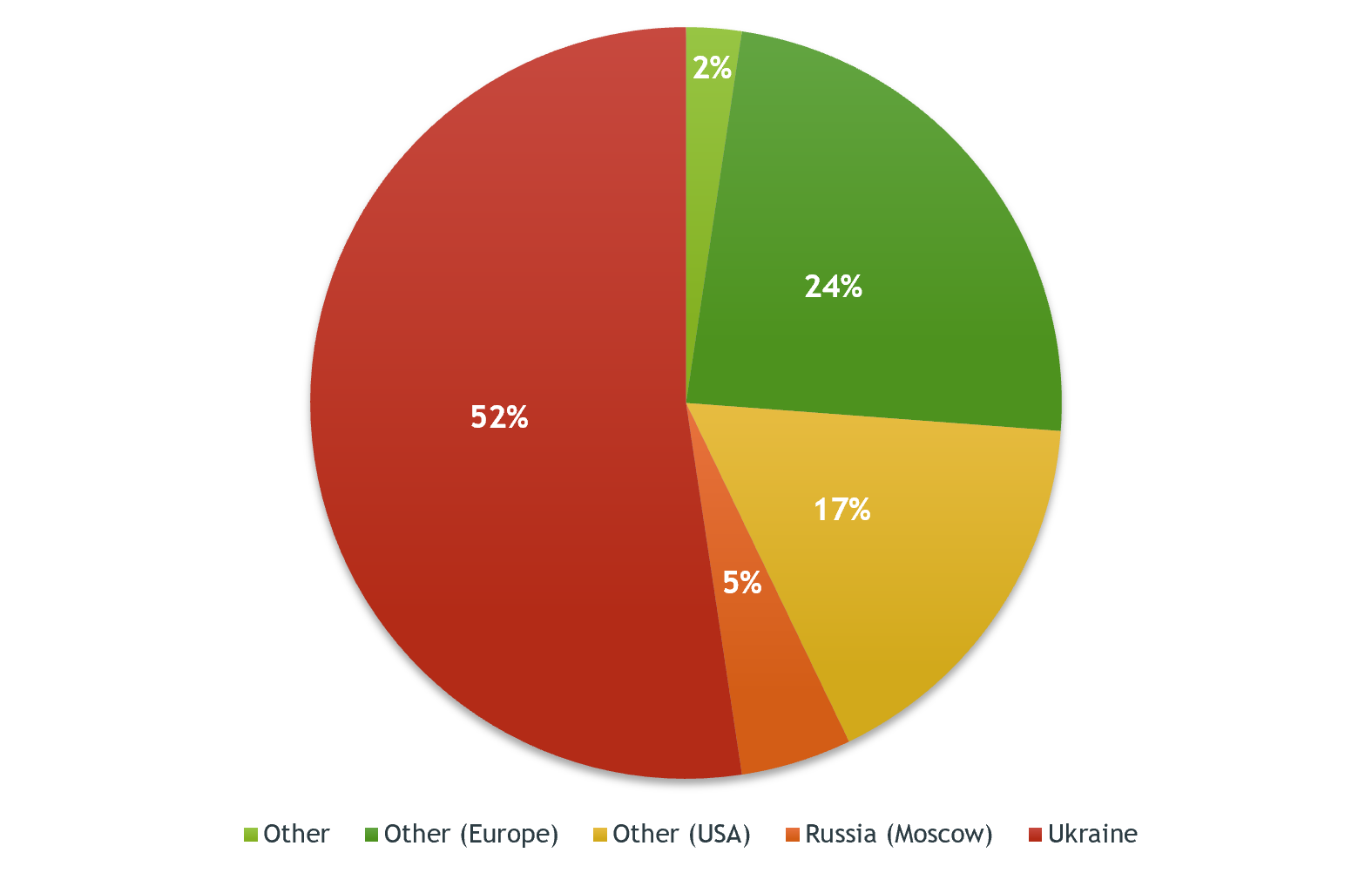 Fig. 1. Country of origin
Fig. 1. Country of origin
65% of respondents work in companies with up to 200 employees and 35% in companies with over 200 employees.
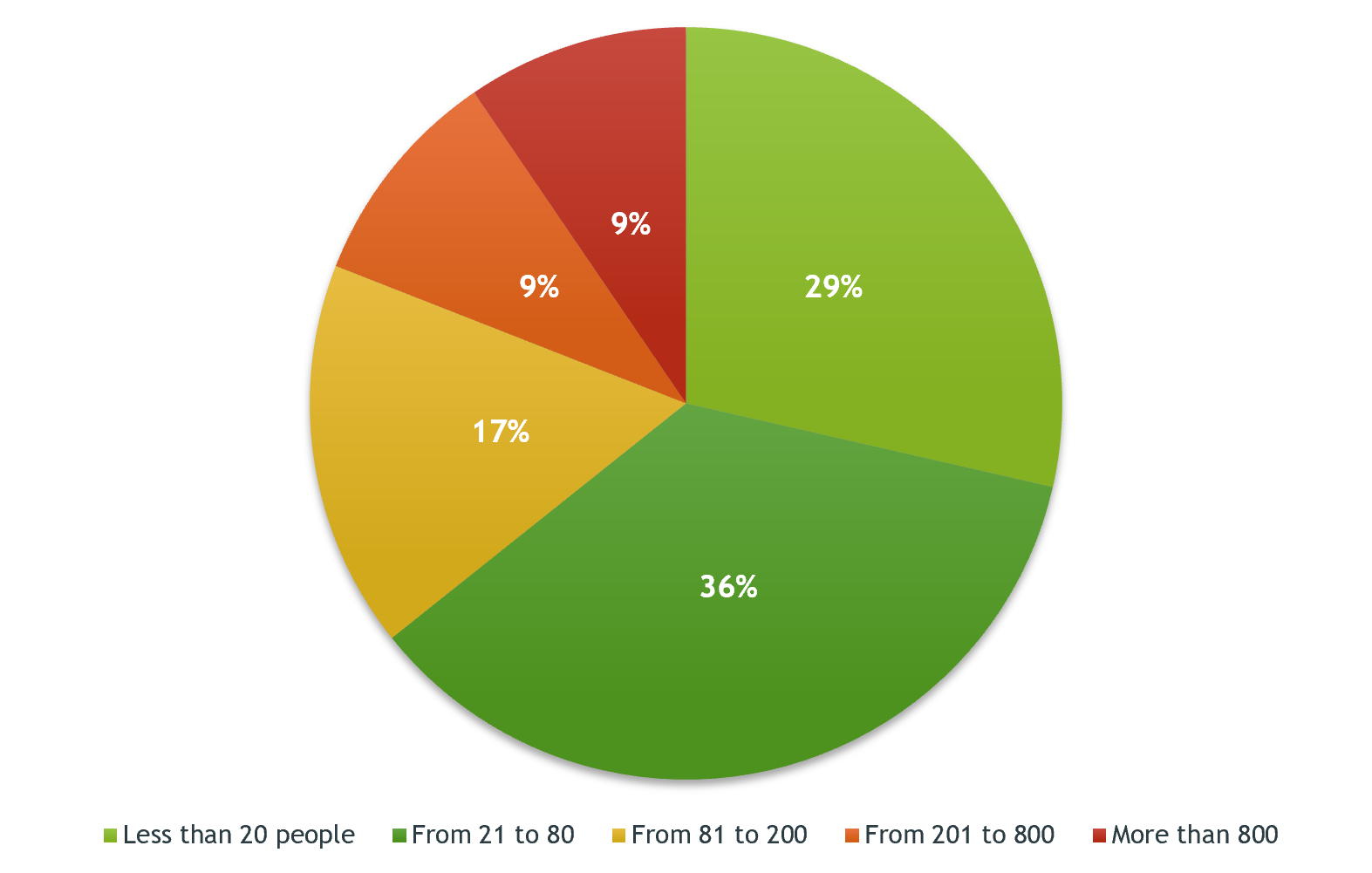 Fig. 2. The number of employees in the company.
Fig. 2. The number of employees in the company.
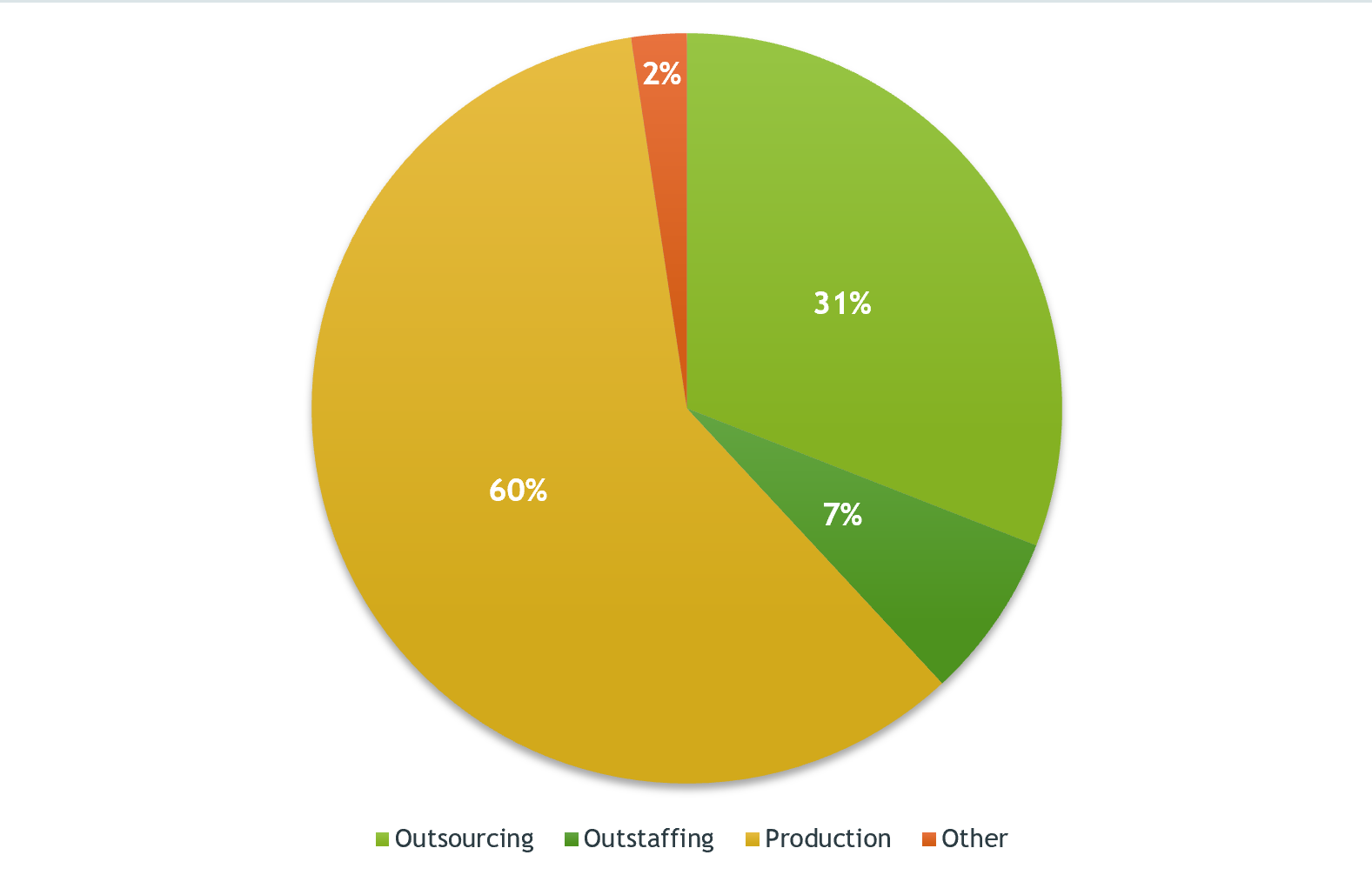 Fig. 3 Percentage of respondents from outsourcing, out-staffing and product-based companies.
Fig. 3 Percentage of respondents from outsourcing, out-staffing and product-based companies.
Before proceeding to detailed numbers, let’s talk about equity.
There are 3 types of pay equity which employees consciously or unconsciously focus on: external, internal and individual.
- External equity is when CEOs receive roughy the same salary. It is not just the size of the companies we are comparing, but also similar business issues that require corresponding skills, knowledge, and experience.
- Internal equity is the “equal pay for an equal position” principle. Accordingly, if 2 employees work in the same company in the same position, they expect the same pay. It is not entirely relevant for a CEO, but at the same time, if CEOs earn less than their subordinates, the problem is either the CEO’s incompetency or an inadequate payment system.
- Individual equity is when there are employees with the same positions and competencies, but differing levels of productivity. For example, the first employee does everything twice as fast with fewer errors. This problem can be easily solved by bonuses, the variable part of the salary and other types of incentives. Regarding the position of CEO, this kind of justice is applicable to the implementation of KPI, (Key Performance Indicators. ) For example, if a company has exceeded their expected profit, but just said “Thank you” and shook the CEO’s hand, that’s not right.
We hope that the results of our survey will help you assess the competitiveness of salaries and whether you are at risk of losing key executives.
Both hired CEOs and founders of companies took part in our survey. Only the salary and bonuses of the CEOs were taken into account, (excluding profits. )
Here’s what we discovered.
 Fig. 4 General remuneration bracket
Fig. 4 General remuneration bracket
But let’s not forget that when deciding on the salary for such an important position, we need to take into account data from the IT market, as well as make provisions for the person’s experience, company size, number of employees, etc. This is what we are going to explore below.
We also would like to emphasize that when we received less than 5 identical answers, they were excluded, because they cannot be sufficiently valid to make decisions.
Thus, for example, if 4 CEOs answered that they had only 3 years of experience as top managers, we would exclude that information as being insufficiently indicative, thus we took only those answers which appeared 5 or more times.
 Fig. 5. Salary + bonus bracket in terms of work experience as a top manager.
Fig. 5. Salary + bonus bracket in terms of work experience as a top manager.
20 CEOs have been holding C-Level positions for over 10 years and on average receive $8, 297 per month.
Generally speaking, the longer a CEO works at the same company, the higher their income. The remuneration of a CEO with over 10 years of experience at one company averages $10, 841 a month.
 Fig. 6. Dependence of salary level on the number of years worked in a company.
Fig. 6. Dependence of salary level on the number of years worked in a company.
The age of the company also matters — the older the company, the higher the average salary.
 Fig. 7. Dependence of remuneration on the age of the company.
Fig. 7. Dependence of remuneration on the age of the company.
Remuneration increases along with the number of direct subordinates.
 Fig. 8. Dependence of remuneration on the number of subordinates.
Fig. 8. Dependence of remuneration on the number of subordinates.
Obviously, it grows along with the company’s income.
 Fig. 9. Dependence of remuneration on the company’s income.
Fig. 9. Dependence of remuneration on the company’s income.
CEOs who don’t receive bonuses earn the least. It’s difficult to imagine a CEO who does not receive a bonus. Where is their motivation to increase the company profits?
 Fig. 10. Remuneration depending on the form of payment.
Fig. 10. Remuneration depending on the form of payment.
The average monthly salary of these CEOs is $4, 400. Based on available data, we assume that these are novice CEOs of small companies.
In addition to learning about salaries, we were also curious to learn about motivation, demotivation and working conditions.
Perhaps surprisingly, salary is not the primary motivator, as it is no more important for CEOs than a ‘culture of trust’ in the company. Topping our survey was freedom in decision-making, (68. 18%), followed by professional development, (59. 09%. )
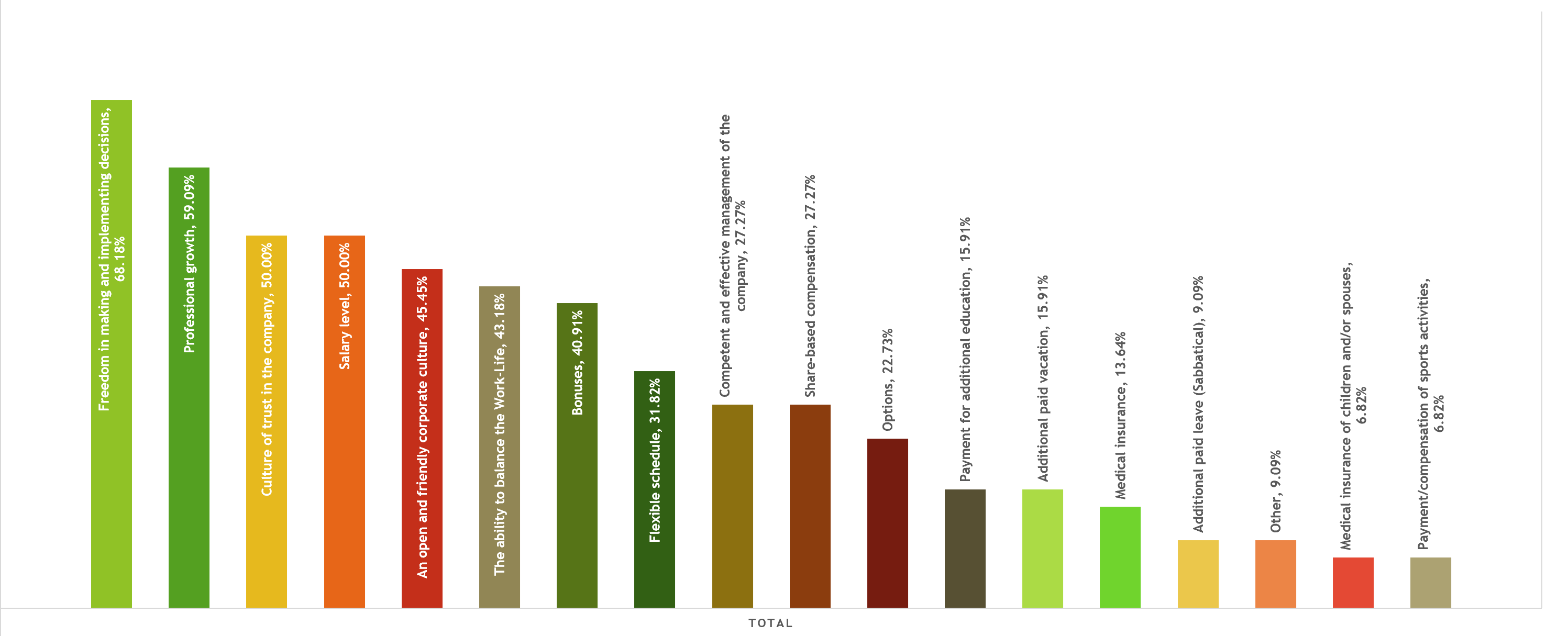 Fig. 11. CEO motivation factors.
Fig. 11. CEO motivation factors.
Chiefs of companies are primarily demotivated by incompetent and inefficient management. This is an oversight on the part of the business owners and the company’s top management. One may assume everything is in the hands of the CEO, but judging by their second complaint, apparently, sometimes their hands are tied.
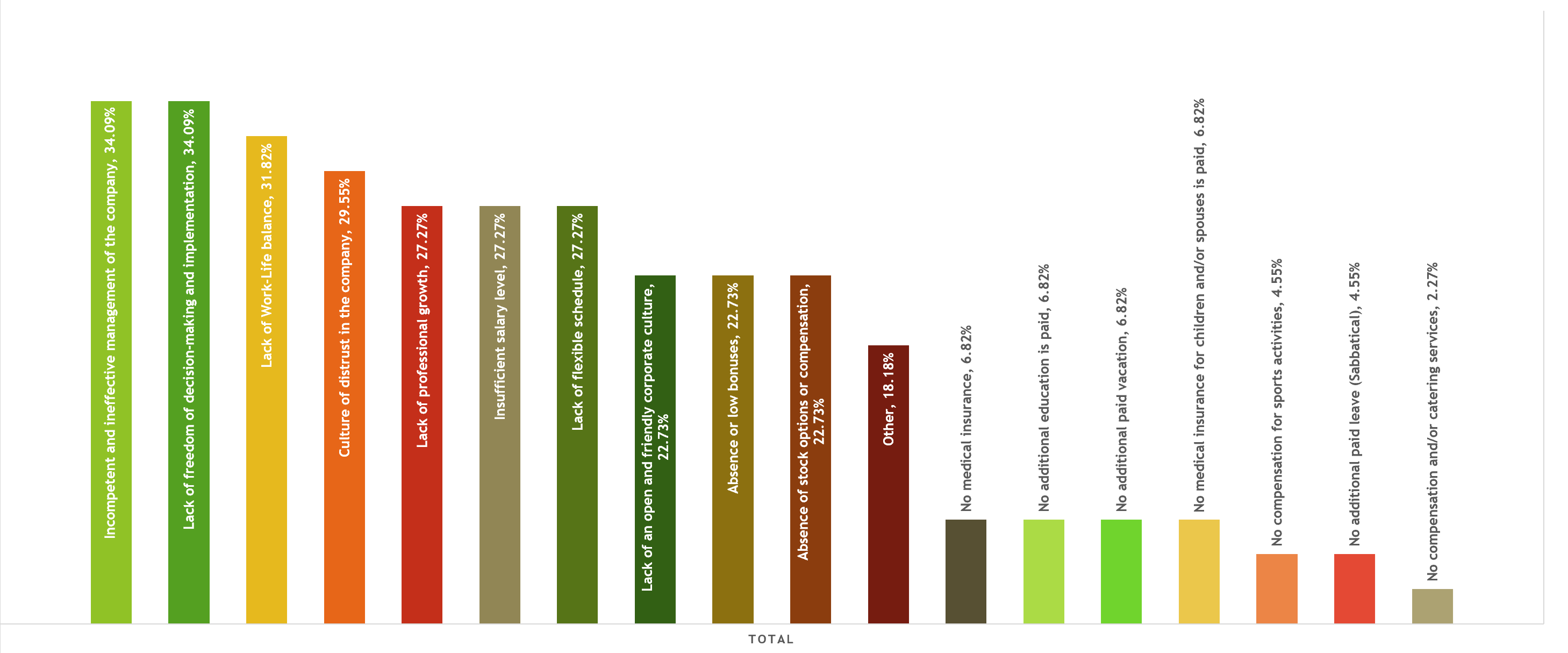 Fig. 12. CEO demotivation factors.
Fig. 12. CEO demotivation factors.
Salary ranks 6th among demotivation factors, behind the absence of ‘work-life’ balance, a culture of distrust in the company, and the lack of professional development.
So, when it comes to motivation, one should consider these other factors, and not simply assume that everyone just wants more money. This need not only apply to the CEO, but all the company’s employees.
A salary package for a CEO looks something like this. You’ll notice everyone is generous with a flexible schedule, although it would be rather odd to have a strict work schedule in place for the top management.
 Fig. 13. Popular packages for CEOs
Fig. 13. Popular packages for CEOs
41% of respondents can work on a flexible schedule and sometimes do the work remotely.
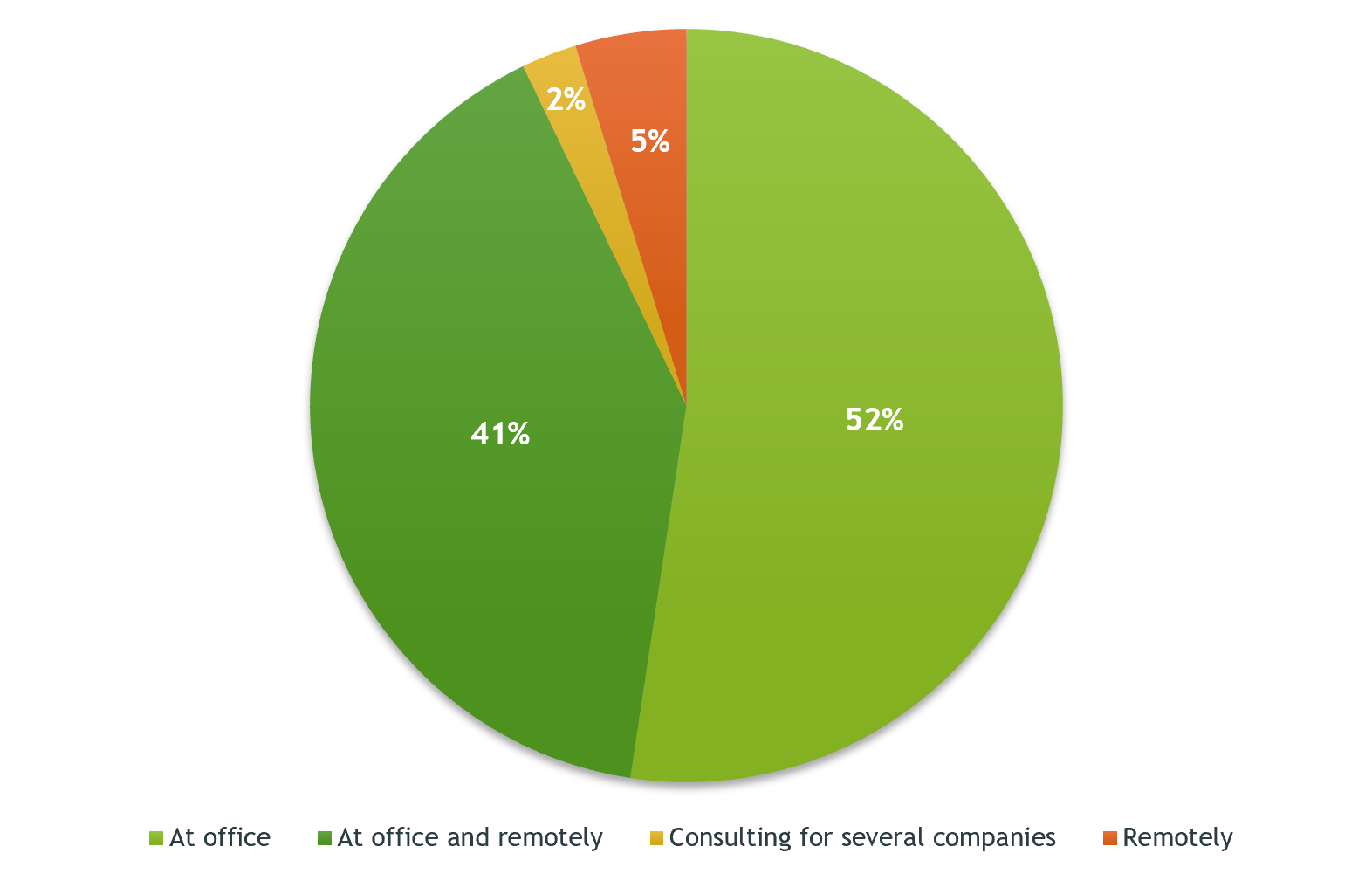 Fig. 14. Work format
Fig. 14. Work format
Remembering the fact that we are talking about IT, 55% of the CEOs are registered as individual entrepreneurs.
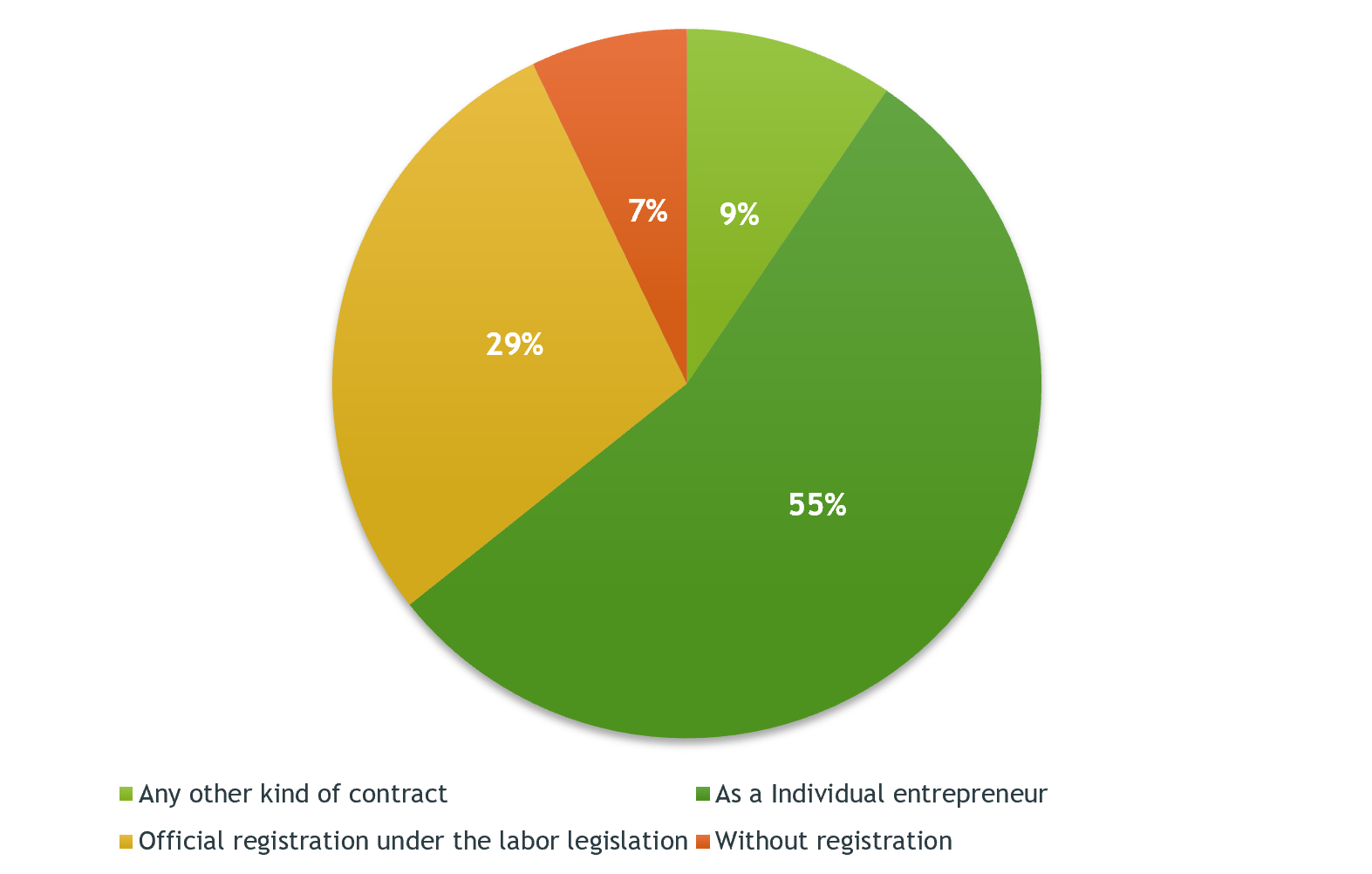 Fig. 15. Legal form of cooperation.
Fig. 15. Legal form of cooperation.
Salaries of 79% are calculated using the US dollar.
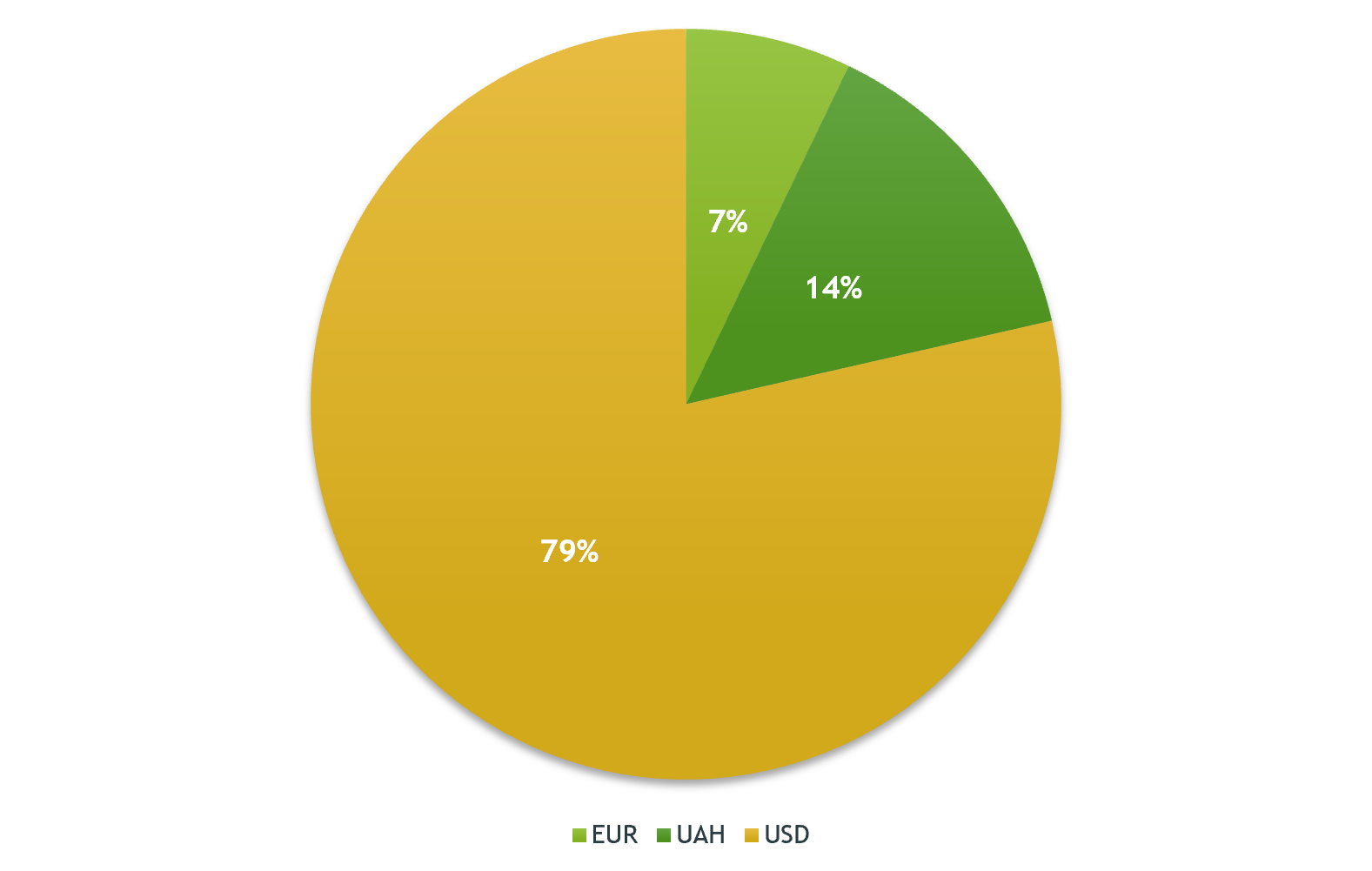 Fig. 16. Currency to which remuneration is pegged.
Fig. 16. Currency to which remuneration is pegged.
In short, it’s always wise to see how your company compares to your competition.
What are your weaknesses? Perhaps you should trust your top managers more to make decisions. Some others might choose to lighten their schedule, letting them leave earlier to spend some quality time with their families.
Undoubtedly, the numbers are important, but there’s more to it.
Here’s wishing you find the right business solutions to retain motivated employees!
We would like to express our appreciation to Vitaliy Luzhentsov for his professional assistance in processing the data.

About the author:
Ekaterina Osadchuk — CEO of IndigoTechRecruiters , economist, professional psychologist, HRD and Development Director with over 10 years of experience.








 Успіх!
Успіх! 